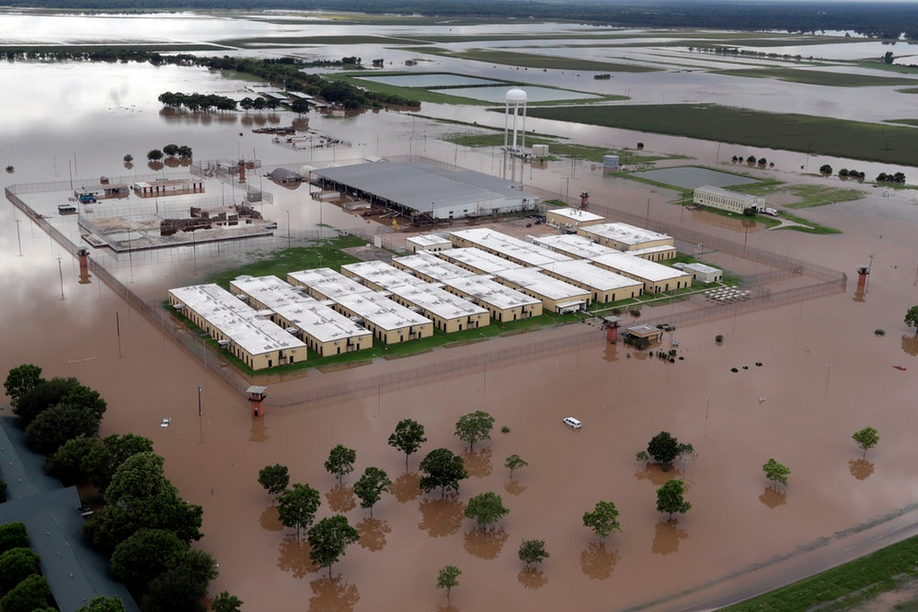Inmates are among the most vulnerable populations on our warming planet—and among the most ignored.
Global warming far and away is the most pressing issue facing the United States (and the rest of the planet). The fast-approaching climate reckoning is bigger than the presidential election, bigger than our imperialist forever wars, bigger even than the virulent fascist threat that’s taken root in the White House and spread its tendrils across the globe. It is no longer an exaggeration to say that the world is dying. Time is running out to pull back from the point of no return before it swallows us all whole.
For millions of Americans, that point is already here—and unlike the majority of people, they have no way to escape its horrors. When natural disasters hit, incarcerated people are often the first to be abandoned; as the climate crisis worsens, so will their suffering. The specter of climate change is a hazardous fact of life for the prisoners forced to labor in sweltering Texas fields, the ones fighting wildfires for pennies in California, and those recently left trapped in the path of Hurricane Dorian when South Carolina prison officials declined to evacuate them ahead of the storm.
And yet incarcerated people have been largely left out of the conversations around ambitious climate justice proposals like the Green New Deal, which neglects to engage with decarceration, prison abolition, or demilitarization. Nor do its lead advocates say much to specifically address what’s already happening inside the country’s prisons. The top demand in 2018’s national prison strike was to create “immediate improvements to the conditions of prisons and prison policies that recognize the humanity of imprisoned men and women.” A year later, not only are those basic demands left unmet, but the number of incarcerated people who’ve died preventable, climate-related deaths have continued to increase.


